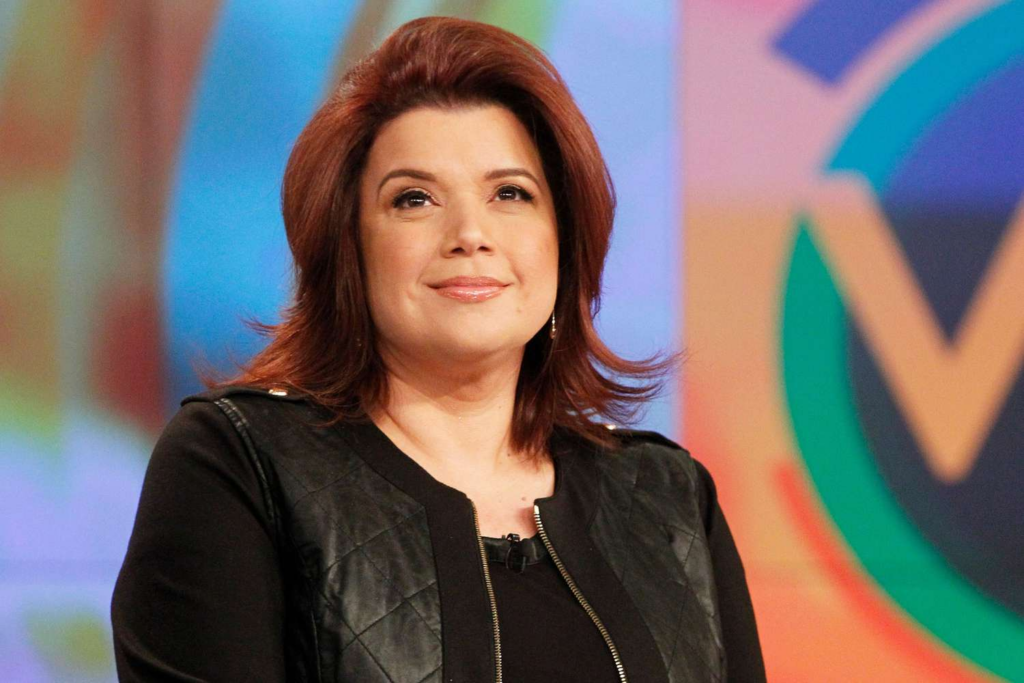Ana Navarro Broke Her Silence About Why She Underwent IVF but Still Couldn’t Have Children Despite Desperately Wanting To, Saying, “It’s All My Fault…”

Image: Getty Images
Ana Navarro, the co-host of ABC’s “The View,” recently opened up about her poignant journey towards motherhood, revealing her experiences with in vitro fertilization (IVF) and the profound challenges she faced. At 50 years old, Navarro candidly shared that despite her and her husband Al Cárdenas’s attempts with IVF, they were met with disappointment. She emphasized that by the time they pursued this option, it was ultimately too late, reflecting on the complex realities many women encounter regarding fertility at later stages in life.

Image: Getty Images
Navarro’s heartfelt discussion shed light on a crucial aspect of modern womanhood: the struggle between career aspirations and reproductive choices. She strongly urged women to consider proactive measures like egg freezing, especially if they are focused on their careers. By doing so, women can have greater control over their fertility timeline, allowing them to maintain flexibility in their lives without the burden of societal deadlines.
The Emotional and Financial Toll of Fertility Challenges
During the episode, Navarro’s co-hosts, including Sunny Hostin and Sara Haines, also participated by sharing their own experiences with fertility struggles. Hostin recounted her heart-wrenching journey through multiple IVF attempts which resulted in five miscarriages. She shared how these challenges took a significant emotional toll on her and her family. Furthermore, she revealed the financial pressure involved in seeking fertility treatments, a burden that often compounds the stress of attempting to conceive.

Image: Getty Images
Haines expanded on this theme, discussing the substantial barriers that exist for many women trying to consider options like egg freezing. The exorbitant costs of such procedures can make them inaccessible to a large portion of the population, effectively sidelining important reproductive choices for many. This conversation not only brought to light the personal struggles women endure but also highlighted the broader implications concerning reproductive rights and choices.
Breaking the Stigma Surrounding Motherhood and Fertility
Another compelling aspect of the segment involved discussions around societal expectations placed on women regarding family planning. Women like Navarro often feel the weight of a ticking biological clock and the ongoing pressure to become mothers. However, this segment emphasized that many women suffer in silence and endure their fertility battles without a community to lean on.

Image: Getty Images
Yet, the dialogue extended beyond women’s experiences alone. Men, too, face pressures related to fatherhood. Andrew Garfield, for instance, candidly admitted feeling guilty about not having children before turning 40. Navarro’s humorous commentary about the societal double standards—where men can often delay family formation without facing the same scrutiny—sparked an important conversation about gender inequality in discussions pertaining to parenthood.
Fostering Solidarity among Women
Overall, Navarro’s openness and the group discussion on “The View” created an environment of solidarity and support. The episode resonated with many viewers, encouraging women to embrace their choices regarding family planning, whether that means pursuing motherhood or opting to remain child-free. This segment served as a reminder that personal choices, amidst societal pressures, should be respected and accepted without judgment.

Image: Getty Images
In a world where conversations about reproduction are often shrouded in stigma, Navarro’s intimate sharing and the thoughtful insights from her co-hosts bring hope and understanding to those grappling with similar feelings. Emphasizing the necessity of community and conversation can empower women to navigate their paths with confidence and clarity.
If you resonate with Navarro’s journey or are facing challenges in your own fertility struggles, take a moment to connect with others who share similar experiences. Opening up this dialogue can foster a supportive network that nurtures understanding and compassion.





